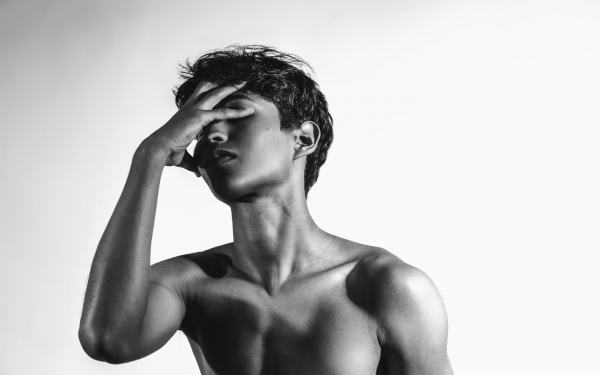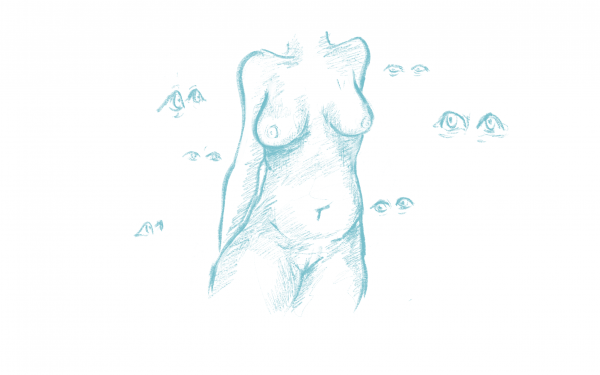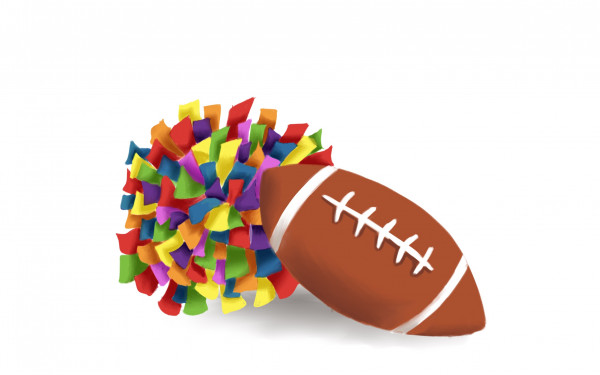Sex Ed(itorial): My Bisexual journey as a Muslim Arab
Navigating identity, acceptance and erasure in a community bound by tradition
I’ve always felt different. Just like every other girl at my elementary school, I had crushes on boys. I got the butterflies, the excitement, the feelings; all of it. But why did I also get that same tingly feeling in my chest when I played house with a girl-friend?
She’d be the husband; I’d be the wife. “Is this normal? Am I doing something wrong?” These were the questions posed in my internal dialogue when the game felt too real. The same butterflies I had felt for boys had made its presence clear.
I grew up in the early 2000s around strictly straight couples. My parents never talked to me about the birds and the bees, and they certainly didn't discuss whether I was attracted to guys, girls, both or none at all.
This was especially true growing up in a Muslim household with an Arab father; the mention of boys or dating alone was forbidden.
The plan that my dad had for me was that I’d get married in my late 20s to a nice Muslim man—preferably Lebanese—and have a family. Until then, there was to be no talk of dating.
Queerness was not a topic of discussion at the dinner table. In the Arab community, being anything but straight is frowned upon and may be dismissed by others.
Whereas my white mother would always be asking my friends and I, “Any new boys you like at school?”
It was programmed into my brain that heterosexual relationships were the norm. That finding that perfect man would be the cure to all of life’s miseries. Anything else was out of the question. Not even a possibility.
In sixth grade, a rumor circulated about a girl in my class being a lesbian. Classmates made fun of her, talked bad about her, and shut her out from the little social cliques we ten-year-olds formed.
It seemed as though everyone thought: “How could she like girls, as a girl? Despicable.”
So, there I was, internalizing all of this. I shoved down a part of myself that I hadn’t had the chance to acknowledge was there in the first place.
Bisexuality and pansexuality were never mentioned in my environment. The only recognized orientations were gay or lesbian; anything in between was dismissed. "You're just confused, it's just a phase, she's experimenting!" were the typical responses you'd hear. Never did I see a bisexual woman being represented in the media as anything more than confused or seeking attention, especially in the early to mid 2000s.
When it came time to enter high school, I was surrounded by a jungle of horny teenagers and straight couples making out at their lockers was completely normal.
Yet, defying these norms was shameful. When two girls were kissing goodbye at the bus stop, you’d hear, “You can be gay, just don't do it in front of me.”
The yearning to be accepted was stronger than my sense of self at the time.I carried on ignoring the synchronous flutter of butterflies tickling my heart when I saw a pretty girl.
I kept these feelings to myself for most of my life, completely dismissing them. That was until I went to CEGEP and met a new friend. She was the first person I opened up to about my questioning sexuality. We both related to being Muslim and being attracted to the same gender.
It felt liberating having someone to talk to that understood my confusion. I would think to myself, “Am I bi?” feeling a deep sense of warmth in my heart but also a knot in my stomach.
My friend would say to me: “I’m trying not to think that way though because it’s bad. And acting on those thoughts is worse.” I felt seen while simultaneously judged.
Repressing my sexuality seemed like the only thing to do to be accepted in my community. That was until I got tired of lying to myself.
I decided that I wanted to discover the part that I had been hiding for the last 19 years of my life. I wanted to be able to kiss, hold hands with, talk to and date whoever my heart desired.
And so that meant telling people. I started with my closest friends and told them with both excitement and nervousness. Their reactions were exactly what I needed.
On the other hand, when I told a man, I’d get the same reaction 90 per cent of the time: a smirk signalling them thinking about something, their smile getting bigger as they’re about to say the thing, then them asking the thing. “So you’d be down for a threesome?” or, even better, “So, like, what have you done with a girl?”
I turn into an object of their fantasy. It makes me feel like a piece of meat being looked at by hungry dogs.
In a society of women being told who they should be, it’s important for us to reclaim our power.
We shouldn’t need to conform to binary sexual identities simply to fit the mass perception of what a woman’s sexuality should be.
Now, at 21, I still am working through discovering more about myself. I still haven’t told my parents and a few other close people in my life, but I’ll get there.
To anyone who is also in the midst of finding out who they are, know that it will happen. Surround yourself with supportive people, talk about it, meet others in your community and dive deep into your soul.
The process is enjoyable, try to experience it.
This article originally appeared in Volume 44, Issue 11, published March 5, 2024.

_1__900_1125_90.jpg)



_(1)_600_375_s_c1.png)

